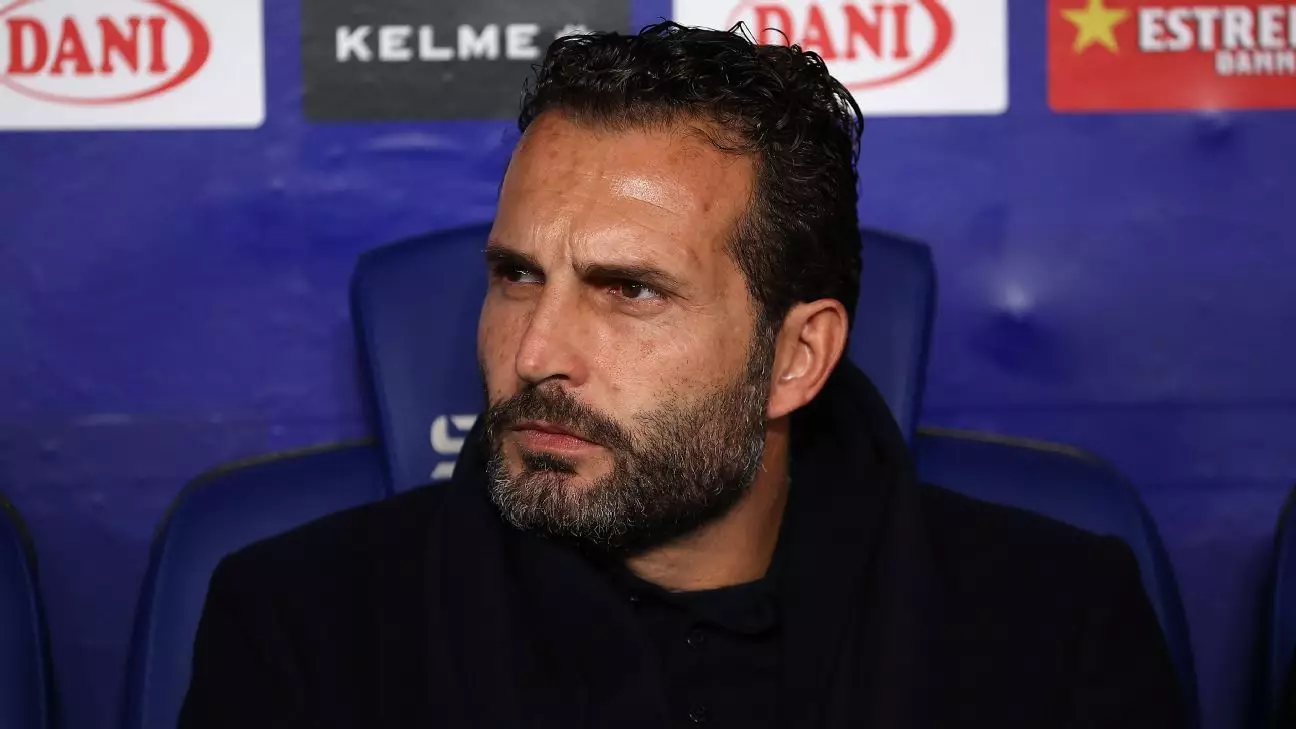Valencia CF finds itself entangled in turmoil following the dismissal of head coach Ruben Baraja, a decision officially announced on Monday. The trigger for this drastic action was a disappointing 2-2 stalemate against Deportivo Alavés, a match that left Valencia languishing dangerously close to the bottom of LaLiga standings. With merely two victories and an alarming nine defeats in their last 17 matches, the club’s performance has been far from what fans and management expected. This sacking exemplifies the relentless pressure on football managers, where results can swiftly determine their fate.
Baraja, a former Valencia midfielder revered as a club legend, took over the managerial role in February 2023. His appointment initially ignited hopes for a resurgence after a dismal season. Last year’s ninth-place finish appeared promising at first glance; however, this season’s trajectory spiraled downward rapidly, provoking the club’s executive board to rethink their strategy. A club statement commended Baraja’s passion and dedication, acknowledging the difficulty of the decision while emphasizing the necessity for a turnaround in performance. This illustrates not only the cutthroat nature of football management but also the burdensome expectations placed on those in leadership roles.
Baraja’s sacking is emblematic of broader issues plaguing Valencia CF, starting with the longstanding discontent among their fan base directed at owner Peter Lim. Acquiring the club during a financially precarious time in 2014, Lim’s tenure has been marked by consistent controversy. Fans have accused him of prioritizing financial management over sporting success, which has led to the routine sale of top players and minimal investments to enhance the squad. The discontent has festered, manifesting in calls for Lim to divest his ownership.
Moreover, Valencia’s issues extend beyond management into the realm of infrastructure. The protracted development of the Nou Mestalla stadium has remained a topic of frustration, especially as the club missed out on the prestigious opportunity to host matches in the upcoming 2030 World Cup. This failure suggests a lack of vision and execution that further compounds the discontent surrounding the club.
Looking towards the future, Valencia CF now faces critical decisions regarding its management structure. They have yet to announce a successor to Baraja, which adds another layer of uncertainty at a club already in a precarious position. The upcoming match against Real Madrid on January 3nd will serve as a significant test for the interim management and the players. As the club navigates through this challenging period, the focus must not only rest on improving results but also on addressing the underlying issues that have contributed to its current plight.
Valencia’s recent developments reflect a microcosm of the broader challenges faced by football clubs entangled in financial and managerial crises. The club’s future success will hinge on its ability to rectify these issues swiftly and effectively, ensuring that it returns to the competitive stature that fans ardently desire.

Leave a Reply